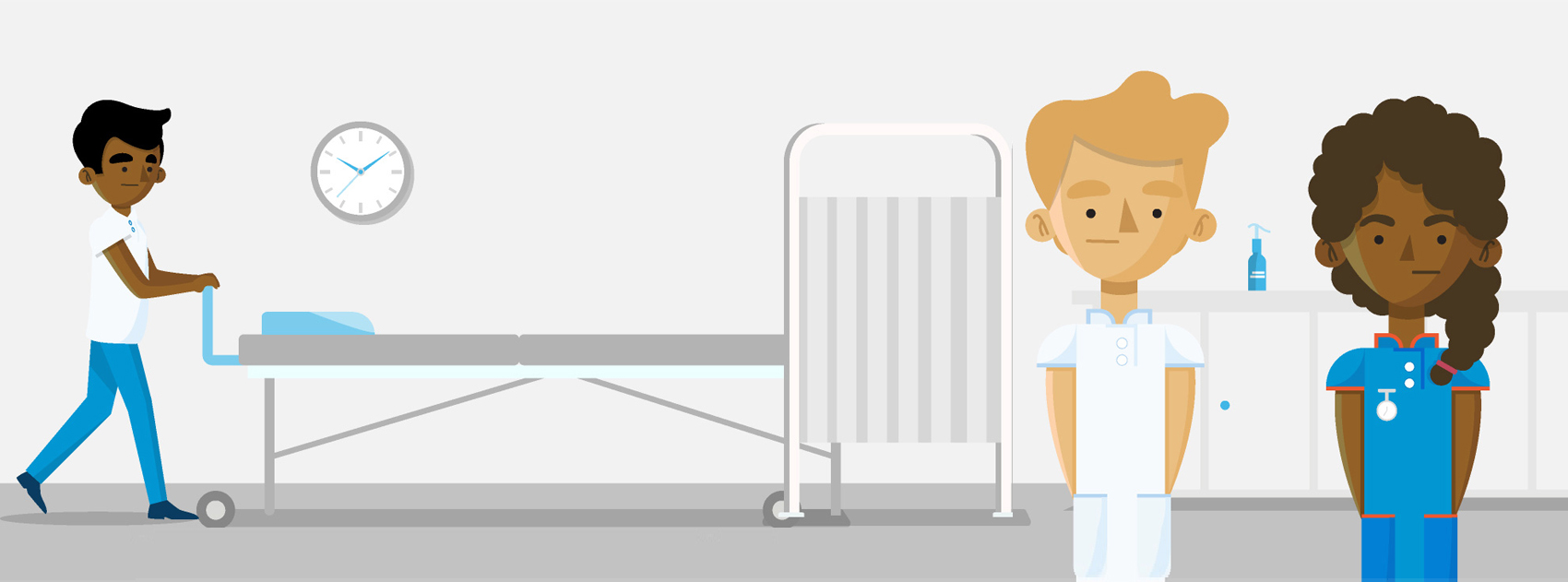Resource Library: Health and Wellbeing
-
About the All Our Health Programme
The Office for Health Improvement and Disparities’ All Our Health framework is a call to action to all health and care professionals to embed prevention within their day-to-day work. Through educational materials, tools and resources, All Our Health helps professionals make an even greater impact in preventing illness, protecting health, promoting wellbeing and reducing health inequalities.
All Our Health - elearning for healthcare (e-lfh.org.uk)
How Are You Feeling NHS? Toolkit

Our emotional wellbeing toolkit explains the contributors to decreased emotional wellbeing and shows you how to encourage improvements.
It’s easier to recognise someone’s physical wellbeing than their emotional wellbeing. We also find it much easier to engage in conversations about physical health, but often find talking about emotional wellbeing to be more of a challenge.
How are you feeling NHS? toolkit | NHS Employers
Looking After Your Team’s Health and Wellbeing Guide
A healthy team leads to a great experience for all your team members, and ultimately better care for our patients. This guide is designed to help you and your team explore what being part of a healthy team means for you, and to embark on a collaborative journey where you are ‘in the driving seat’ to improve things, together.
NHS England » Looking after your team’s health and wellbeing guide
Menopause At Work: A Guide For People Professionals

The NHS workforce is over 1.3 million strong and 76.5% of the workforce (over 1 million) are women. Women between the ages of 45 and 54 who are likely to be going through the menopause transition make up 1 in 5 of the entire NHS workforce, over 260,000 women. The vision of the NHS Menopause Programme is to create a supportive working environment that champions the wellbeing of women and others affected by the menopause transition, so they stay and thrive in the workplace whist going through the menopause.
The menopause at work: A guide for people professionals | CIPD
Occupational Health for NHS Staff
An excellent occupational health (OH) service for staff can help the NHS be more productive, reduce sickness absence, improve retention and save money. For OH to have the greatest impact on an organisation it should work in partnership with key stakeholders including human resources, health and safety, infection prevention and control, and, more crucially, managers. Managers need to be aware of what services OH provides and feel able to approach these services for support and advice when needed.
Occupational health for NHS staff | NHS Employers
Providing Rapid-Access Mental Health Services for NHS Staff
Learn how Cambridgeshire and Peterborough NHS Foundation Trust created a rapid-access mental health service to support its staff.
The mental health and wellbeing of healthcare workers was a concern for the NHS long before COVID-19. But the pandemic led to a dramatic increase in requests for mental health support for staff, while having a detrimental effect on those with pre-existing mental health conditions.
At the height of the COVID-19 pandemic, Cambridgeshire and Peterborough NHS Foundation Trust (CPFT) set up a new service providing rapid access to multidisciplinary mental health support for all staff within the five trusts across Cambridgeshire and Peterborough.
Providing rapid-access mental health services for NHS staff | NHS Employers
St Richard’s Hospice
Have you, or a loved one, been diagnosed with a serious, progressive illness? Are you looking for advice, support and the chance to ask questions in a friendly, informal setting? Pop along to our Wellbeing Café in The Green at St Richard’s Hospice every Wednesday between 10.30am and 3pm.
You don’t need a referral from a health professional to attend the café, where you can access:- Expert advice from staff and Living Well volunteers
- One-to-one guidance
- The opportunity to meet others and share experiences
- Signposting to services in the community or at St Richard’s
- A break with a free cuppa or chance to buy delicious refreshments
St Richard's Hospice (strichards.org.uk)
Self-Reflection Toolkit
This is a self-reflection tool for social care and health workers aimed at personal growth and team development during peak pressure.
In partnership with Skills for Care and Partners in Care and Health, we have developed a self-reflection toolkit designed for personal self-reflection, supervision and team development across every part of social care and health.
Click the link below for more information
Self-reflection toolkit | NHS EmployersSuicide Awareness Training
Free online training to help you help others
20 minute suicide awareness training
Gain skills and confidence to help someone who may be considering suicide.
30 minute interactive film
Guides the viewer as they make choices to support someone with suicidal thoughts and behaviours.
60-90 minute training developed by Health Education England.
Purpose = reduce stigma re: suicide, help everyone see that asking someone how they are and talking about suicide can really help
Supporting our NHS People

The NHS achieves extraordinary things for patients, but this is only possible if the safety, health and wellbeing of our people is recognised as a key priority. If we don’t look after ourselves and our colleagues, we cannot deliver safe, high quality patient care.
The pandemic has had a significant physical, mental and psychological impact on our people – and this will continue for some time to come. It has never been more important for all our NHS people to take time to look after their own health and wellbeing. Our varied support offers are here to stay, and they will remain here for you to access when needed and support you on your wellbeing journey, or to seek further help at the point at which it is needed. Leaders, teams and employers are encouraged to offer their colleagues support to stay well at work, and to keep offering it consistently – across teams, organisations and sectors, in order to sustain the ability to care for patients, long term.
NHS England » Supporting our NHS people
Supporting Our NHS People Experiencing Stress
Developed with our health and wellbeing leads, this page provides information to help you support people experiencing stress.
Stress is something that everyone feels at times. Work-related stress is defined by the Health and Safety Executive (HSE) as 'the adverse reaction people have to excessive pressures or other types of demand placed on them’. It is more prevalent in public service occupations, such as health and social care.
Supporting our NHS people experiencing stress | NHS Employers
Talking Toolkit Aims to Reduce Work Stress
A toolkit specifically for NHS service providers has been launched by the Health and Safety Executive with the aim of reducing work-related stress.
The Talking Toolkit focuses on how managers can start and conduct a range of conversations covering issues of demands, control, support, relationships, role, and change.
Designed to be used in conjunction with an organisation’s overall wellbeing approach, it also includes:
- top tips for managers when holding work-related stress-based conversations
- conversation templates
- sign posting to further support and information.
There are separate pdf toolkits for England, Scotland and Wales
Talking Toolkit aims to reduce work stress | NHS Employers
Top Tips For Supporting The Psychological Safety of Staff
Find out how to create a psychologically safe workplace that improves staff experience and wellbeing.
Top tips for supporting the psychological safety of staff | NHS Employers
Useful Health and Wellbeing Resources for Line Managers
The health and wellbeing resources below are intended for line managers to aid in their understanding of their teams health and wellbeing.
Evaluating Your Health and Wellbeing Programme
This page offers guidance for health and wellbeing leads on how to measure feedback from strategies and initiatives.
NHS organisations offer a range of staff health and wellbeing initiatives, but how do you demonstrate whether they have created the intended impact?
Evaluating your health and wellbeing programme | NHS Employers
Evidence-Based Approaches to Workforce Wellbeing
This page details evidence-based approaches to workforce wellbeing and provides a useful basis for reviewing your approach.
Although there is no one-size-fits-all approach to improving the wellbeing of your workforce, the evidence base on the most effective initiatives and approaches is constantly evolving and can provide a useful basis for reviewing your approach and making decisions as we know how important it is to retain our valued NHS workforce.
The NHS Long Term Workforce Plan and the NHS People Promise explore how having a positive staff experience and a rounded support offer are vital to encouraging staff to remain in the workplace. The information provided below can support you in making informed choices to look after our NHS colleagues.
Evidence-based approaches to workforce wellbeing | NHS Employers
Back to topHealth and Wellbeing Top Tips For Supporting Line Managers
The Chartered Institute of Personnel and Development (CIPD) stated in its research that 'middle managers have really come out as the squeezed middle'. With increasing workforce pressures and demands on NHS staff, it's vital that managers are effectively supported in the workplace.
Health and wellbeing top tips for supporting line managers | NHS Employers
Skip SamaritansSkip Be Well MidlandsSamaritans
What to say & how to listen
Samaritans SHUSH listening tips
conversation starters around suicide
How to start, manage and close conversations about mental health
Be Well Midlands